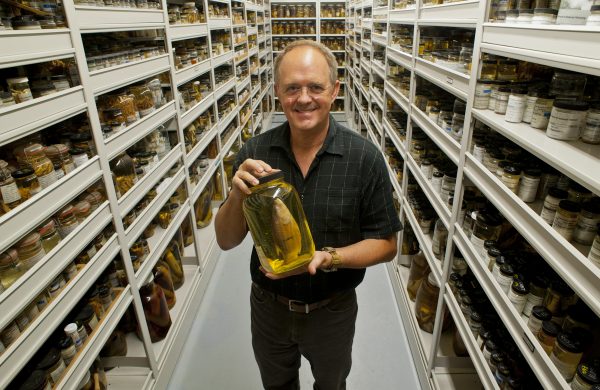Florida Museum of Natural History researcher Larry Page will deliver a congressional briefing in Washington Tuesday about the value of digitizing biological collections.
Page is president of the National Science Collections Alliance and will be speaking on behalf of the organization, a nonprofit group representing institutions that house natural science collections. The briefing from 2 to 3 p.m. in Room 2325 of the Rayburn House Office Building was arranged by the American Institute of Biological Sciences.

Florida Museum photo by Jeff Gage
“We have enormous collections of specimens in our natural history museums but the information they contain is not accessible to most potential users,” said Page, ichthyology curator at the museum, located on the University of Florida campus. “In fact, most people don’t even know the collections exist, so there’s no way for them to access the information about where species occur and how changes are taking place over time. That’s highly relevant now because of climate change – some species are becoming more abundant, while others are disappearing. This has relevance to agricultural crops, invasive species and other species of importance to humans.”
In recent years, technological advancements have made digitization possible, but the process requires taking high–resolution photographs and creating online databases to accommodate the vast amount of information, and this is very time–consuming. Page said he looks forward to seeing how public access will influence opinions about biological collections as well as understanding and appreciating the importance of biodiversity and policies affecting biological diversity.
“By digitizing specimens and ancillary information, policy makers, educators, students and the general public have access to information on biodiversity,” Page said. “It’s a huge task because there are millions of specimens, but it will be a tremendous leap forward in providing biological information.”
Learn more about Ichthyology at the Florida Museum.